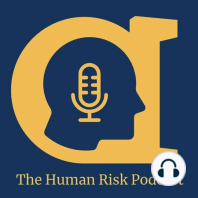46 min listen
Geoff White on The Lazarus Heist
ratings:
Length:
61 minutes
Released:
Jun 2, 2022
Format:
Podcast episode
Description
Why did a group of hackers with links to North Korea launch a cyber attack on Sony Pictures in 2014? That’s what journalist Geoff White set to find out. In doing so, over a period of several years, he uncovered a trail of criminal activity that included a bank heist, data leaks and money laundering. On this episode, Geoff, whose new book The Lazarus Heist tells the story of what he discovered, explains how Geoff came to investigate the story, how he went about researching it and the lessons he’s learned from doing so. We also examine some of the dynamics of the issues the story raises, including cybercrime, money laundering and electronic warfare. It’s an astonishing tale that has human risk all over it.To find out more about Geoff visit: https://geoffwhite.tech/To pre-order The Lazarus Heist book: https://www.penguin.co.uk/books/447/447163/the-lazarus-heist/9780241554258.htmlTo hear the podcast: https://www.bbc.co.uk/programmes/w13xtvg9/episodes/downloadsTo be notified when new episodes of this show come out visit: https://www.getrevue.co/profile/humanrisk
Released:
Jun 2, 2022
Format:
Podcast episode
Titles in the series (100)
Kelly Paxton on Pink Collar Crime: In this episode, I speak to Kelly Paxton who is a specialist in Pink Collar Crime which is a type of Human Risk. Kelly explains what Pink Collar Crime entails, why it is more significant than we might think and, most importantly, what we can do to... by The Human Risk Podcast
